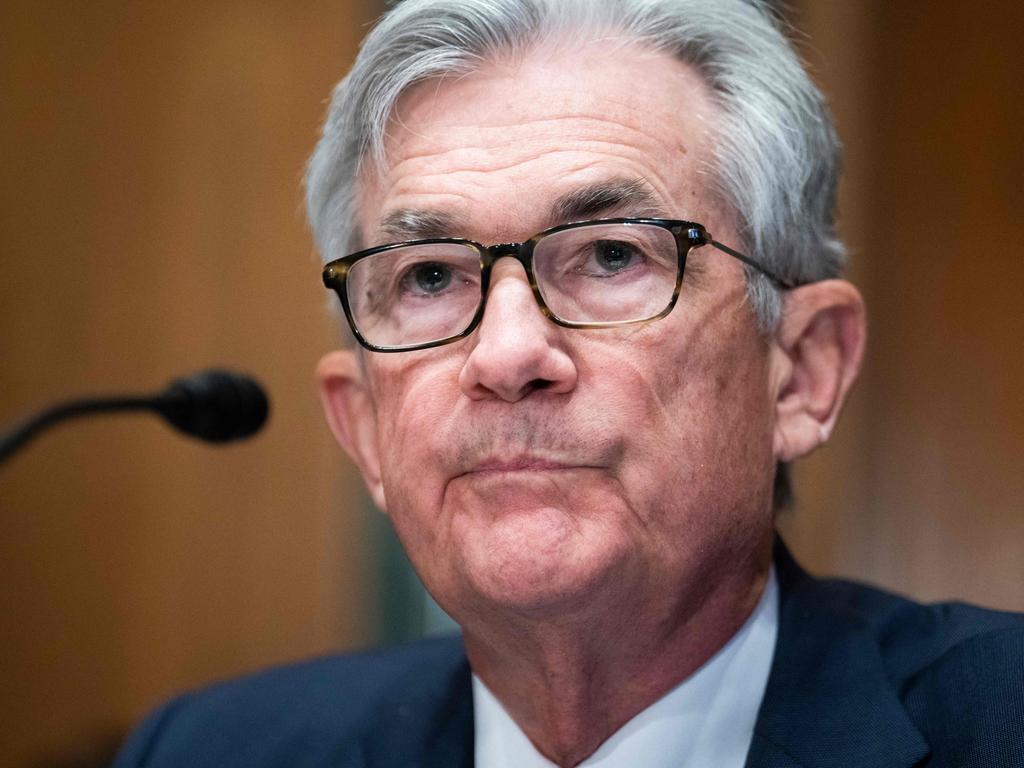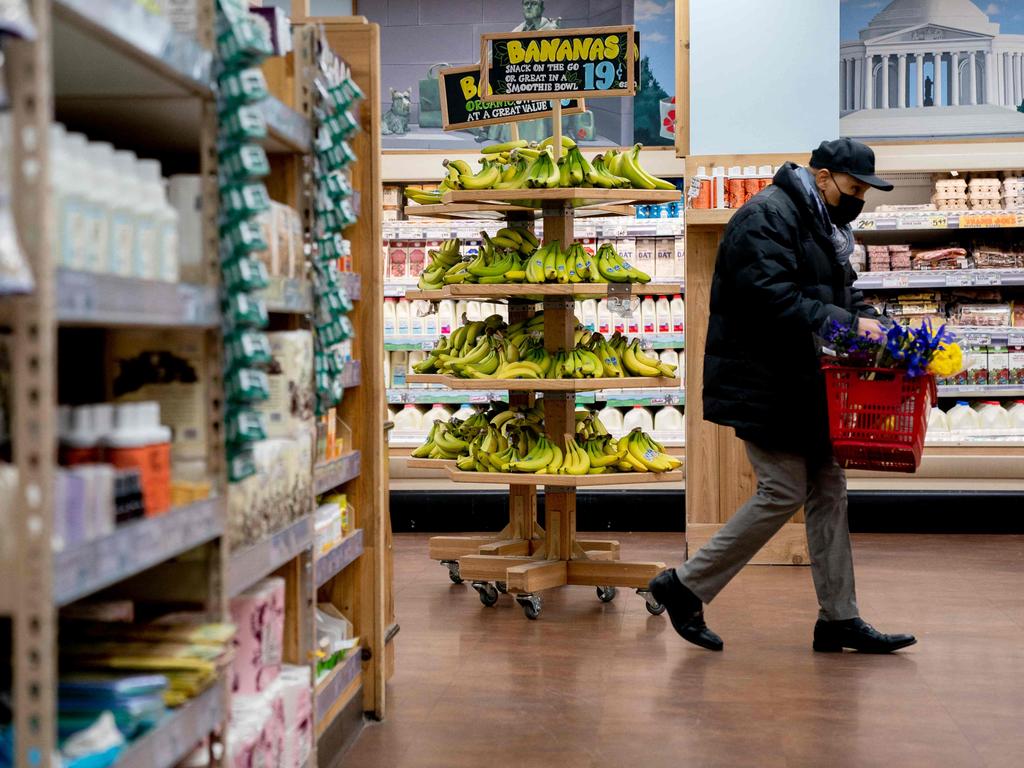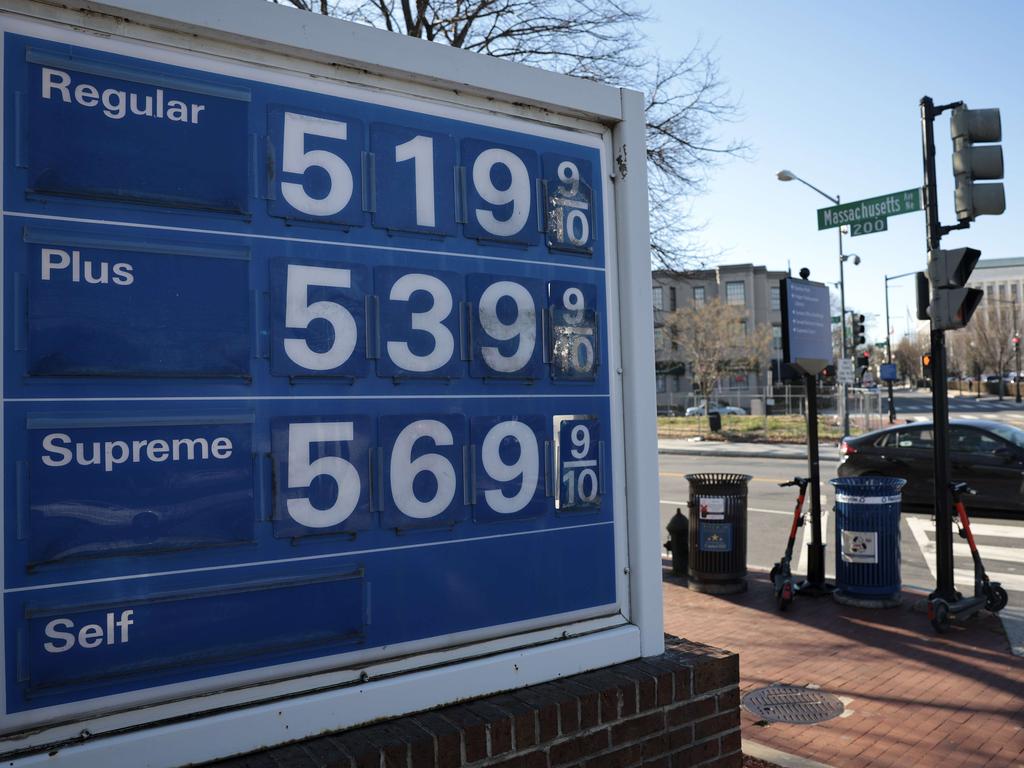US Fed raises interest rate as inflation soars
Australia’s Reserve Bank will soon follow the US Federal Reserve in starting to raise interest rates, economists say.
Australia’s Reserve Bank will soon follow the US Federal Reserve in starting to raise interest rates, economists say.
The US Federal Reserve escalated its battle against the wave of price increases battering the American economy on Wednesday by raising the benchmark interest rate even as it acknowledged the risk posed by the war in Ukraine.
At the conclusion of its two-day meeting, the policy-setting Federal Open Market Committee (FOMC) announced a quarter-point rate hike, the first since 2018 and since it cut the rate to zero at the start of the Covid-19 pandemic.
AMP Capital chief economist Dr Shane Oliver said he was expecting the RBA to follow suit with a 15 basis point rise in June, taking the cash rate to 0.25 per cent, followed by two more this year to reach 0.75 per cent.
“This is not because the Fed is raising rates,” he said in a note on Thursday.
“The link between US and Australian rates has been tenuous in recent times with the RBA hiking in 2009-10 when the Fed did nothing and the RBA cutting or on hold when the Fed raised rates over 2015 to 2018. They only move together if there is cyclical alignment and this year there is, with both the US and Australia recovering from the pandemic and seeing rising inflation.”
Dr Oliver said Australian interest rates were likely to rise less than the US, “reflecting lower inflation in Australia and the start of a downturn in Australian property prices”.
“This means the gap between Australian and US interest rates will likely go negative,” he said.
“While a decline in the short-term interest rate gap between Australia and the US normally puts downwards pressure on the value of the Australian dollar, this is likely to be more than offset by strong commodity prices which is being accentuated by the war in Ukraine. As a result, unless there is a global recession, we continue to see the Australian dollar rising over the next year.”

Inflation soaring
The US central bank is walking a tightrope to ensure its efforts don’t derail the recovery from the Covid-19 pandemic even as Russia’s invasion of Ukraine introduces new uncertainty in an economy battered by supply chain snarls and labour shortages.
Inflation is surging in the United States, hitting the highest level in 40 years and pushing up the prices of food and petrol.
In a statement, the FOMC said the fallout from the war in Ukraine is “likely to create additional upward pressure on inflation” and also could “weigh on economic activity,” although the “implications for the US economy are highly uncertain”.
Pointing to “elevated” inflation due to “supply and demand imbalances related to the pandemic, higher energy prices and broader price pressures,” the statement said that ongoing increases in the policy rate will be “appropriate”.
While the rate cut in March 2020 was meant to support the economy as Covid-19 caused massive disruptions to businesses, over the past year the US has been hit by high inflation, with prices for petrol, food, cars and rents pushing the overall consumer price index to a four-decade high.
Markets are expecting as many as seven rate hikes this year, which would take the policy rate to 1.75 per cent, assuming the central bank increases by a quarter-point at each meeting.

Dissenting vote
Federal Reserve chair Jerome Powell has said policymakers will do whatever it takes to keep inflation from becoming entrenched, including larger rate hikes.
But one member of the committee, St Louis Federal Reserve president James Bullard, dissented from the vote, arguing for a more aggressive half-point increase as the first step in the tightening cycle.
The FOMC also released its quarterly economic projections, showing members of the committee raised their median inflation forecast for the year to 4.3 per cent from 2.6 per cent previously, and slashed the growth estimate to 2.8 per cent from 4.0 per cent.
Members were split on how high rates would go, with nine still expecting the level to be below 2 per cent at the end of the year, and seven looking for a higher rate.
The last time the Federal Reserve raised interest rates was in December 2018.

US stocks end higher
Wall Street stocks finished solidly higher on Wednesday.
The Dow Jones Industrial Average finished up 1.6 per cent at 34,063.10. The broadbased S&P 500 gained 2.2 per cent to 4357.86, while the tech-rich Nasdaq Composite Index surged 3.8 per cent to 13,436.55.
Art Hogan, chief strategist at National Securities, said the Fed’s message was consistent with market expectations, meaning the interest rate hike had already been priced in.
He said markets also continued to gain strength from a significant pullback in oil prices, which had “got ahead of” themselves by surging shortly after Russia invaded Ukraine.
Analysts have also cited hopes for a peaceful resolution to the conflict as aiding sentiment.
Earlier, US data showed retail sales rose 0.3 per cent last month in a move largely attributed to higher gasoline prices.
The prospect of higher interest rates lifted shares of large banks such as JPMorgan Chase and Bank of America, both of which won more than 3 per cent.
Among individual companies, Starbucks jumped 5.2 per cent after longtime chief Howard Schultz announced he would return to lead the company on an interim basis and Kevin Johnson would step down, as the coffee giant faces a unionisation drive at US stores.





